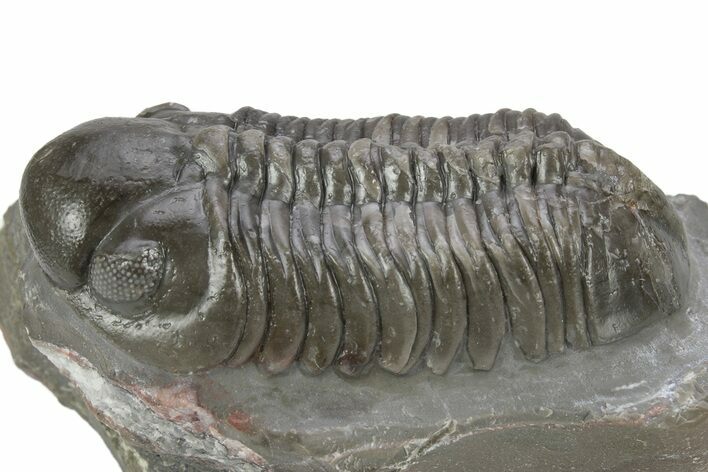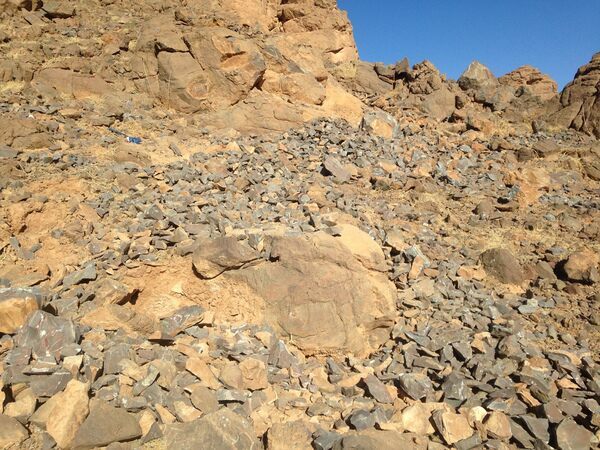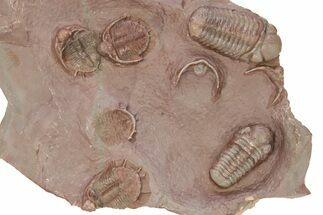This Specimen has been sold.
2.55" Small Eyed, Struveaspis Trilobite - Jorf, Morocco
This is a 2.55" specimen of phacopid, trilobite. Struveaspis bignoni. Two defining characteristics of Struveaspis that separate it from most phacopids is it's smooth shell eyes that are almost flat against its head. This is a particularly nice specimen with only about 1% shell restoration along a repaired crack.
Trilobites are collected from a 15-meter-thick section about 6kilometers northwest of Jorf, Morocco. Unlike many other localities, these rocks do not have distinct deposition layers, but rather are massive. They likely represent a gigantic "mud mound" that formed at the base of a volcanic island due to mud slides. The rock is very silicified, almost like a chert, and can be quite colorful. The actual shells on the trilobites are translucent: the trilobite tends to be the color of the rock it sits on.
Because the rock contains a large amount of silica, it is extremely hard, and preparing trilobites from the site is difficult since the rock does not separate well from the shell. Within the 15-meter section, only about two meters have been heavily collected, so occasionally this site will produce some extremely rare and one-of-a-kind specimens collected in float from the other layers.
Because the rock contains a large amount of silica, it is extremely hard, and preparing trilobites from the site is difficult since the rock does not separate well from the shell. Within the 15-meter section, only about two meters have been heavily collected, so occasionally this site will produce some extremely rare and one-of-a-kind specimens collected in float from the other layers.
About Trilobites
Trilobites were a very diverse group of extinct marine arthropods. They first appeared in the fossil record in the Early Cambrian (521 million years ago) and went extinct during the Permian mass extinction (250 million years ago). They were one of the most successful of the early animals on our planet: over 25,000 species have been described, filling nearly every evolutionary niche. Due in large part to their hard exoskeletons (shells), they left an excellent fossil record.
Trilobites were a very diverse group of extinct marine arthropods. They first appeared in the fossil record in the Early Cambrian (521 million years ago) and went extinct during the Permian mass extinction (250 million years ago). They were one of the most successful of the early animals on our planet: over 25,000 species have been described, filling nearly every evolutionary niche. Due in large part to their hard exoskeletons (shells), they left an excellent fossil record.
SPECIES
Struveaspis sp.
LOCATION
Jorf, Erfoud, Morocco
FORMATION
Bou Tchrafine Formation
SIZE
2.55" long
CATEGORY
SUB CATEGORY
ITEM
#235651
We guarantee the authenticity of all of our specimens.
 Reviews
Reviews

















